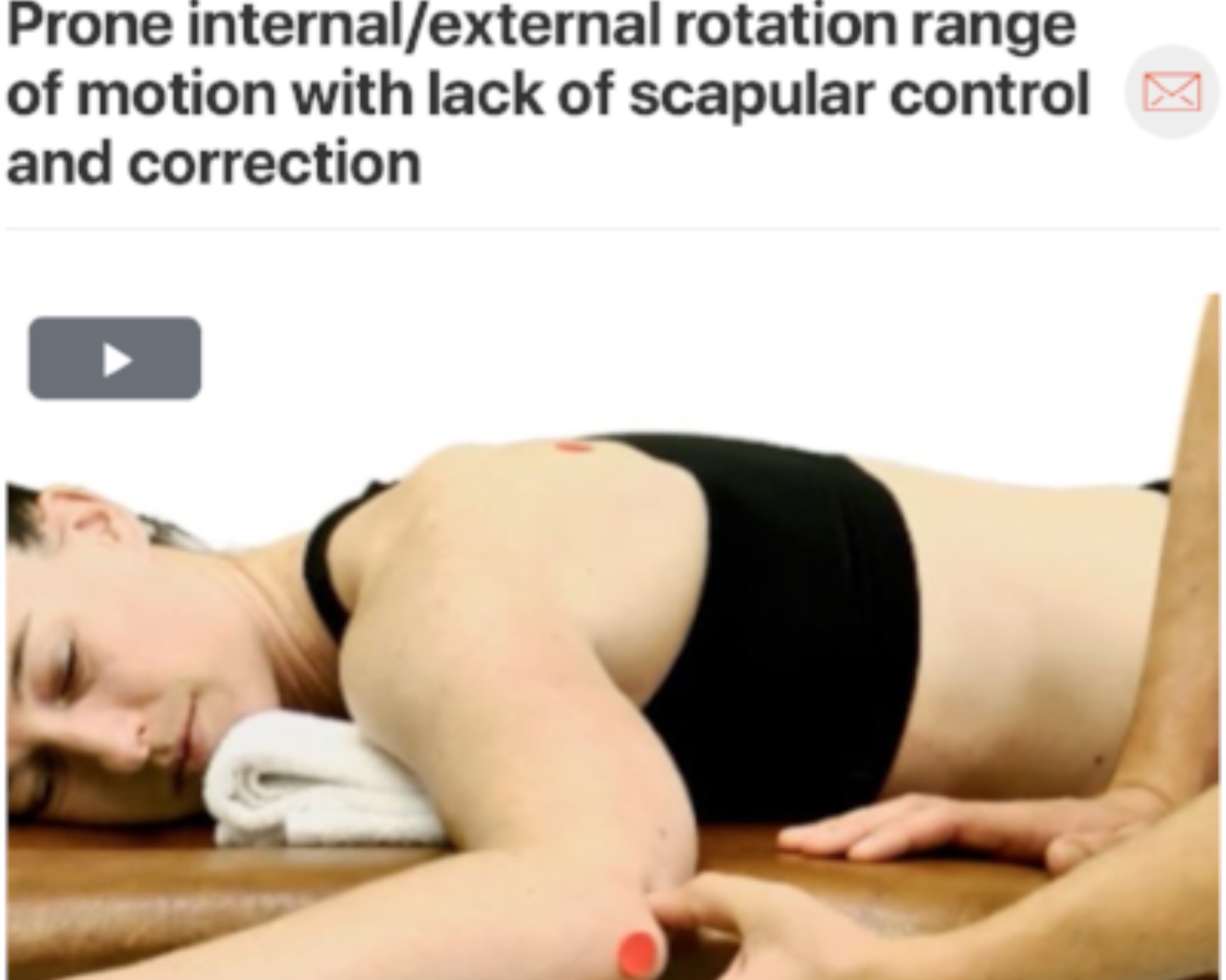A common movement fault seen in patients that have labral tears is an anteriorly translated humerus. This can be caused from a tight posterior capsule pushing the head of the humerus forward. (Click image to watch 1-2 minute video)
Special Tests
There are many tests to assess if a patient has a labral tear or not. How do you know which one to choose?! Biceps load II has a very high specificity which means that it is an excellent special test for ruling in a labral tear. (Click image to watch 1-2 minute video)
Treatment & Therapeutic Exercise
Treatment depends on stage and irritability of the patient. If the patient has low irritability and primary range of motion impairments have been addressed, it is important to work on movement retraining. This exercise focuses on keeping the head of the humerus centered in the glenoid as the patient work on internal and external rotation. (Click image to watch 1-2 minute video)
The beauty of movement retraining as a treatment is that it can also be sent home as a home exercise for the patient to work on. The above video shows a progression from working on precision training in supine. Once that is mastered you can progress the patient to prone and then to standing exercises. Quality of motion over quantity is very important to consider with movement retraining! (Click image to watch 1-2 minute video)
PT/PTA Faculty webinar: Teaching movement with mobile apps- Gait/Neuro/Peds/Ortho
Overcoming the challenges of teaching human movement using new mobile apps to enhance deep learning in physical therapy education.
Join Dr. Michael Wong, PT, DPT, OCS, FAAOMPT and Dr. James Syms, PT, DSc in an interactive discussion about developing and using mobile apps to teach human movement.
1. Teaching movement with mobile apps- Gait/Neuro/Peds/Ortho
2. How we train students to learn about movement
3. A glimpse into the future with functional movement app & Neurologic movement Dysfunction app
4. Open discussion with faculty group
Many PT/PTA schools are using PhysioU as the required learning tool and beta testing in the classroom. Our top-rated clinical reasoning apps are making a huge impact on thousands of students.
OT/OTA Faculty webinar: Apps & Deep Learning in Occupational Therapy Education
Deep learning in the digital age! The development of new mobile apps to engage students, develop clinical reasoning and enhance motor skill acquisition has ushered in a new age of Occupational Therapy education.
Tune in with Dr. David Plutschack, OTD OTR/L BCPR CLT, Dr. Michael Wong, PT, DPT, OCS FAAOMPT and Dr James Syms, PT, DSc in this interactive chat about how to enhance deep learning in rehabilitation education and get full faculty access to the PhysioU suite of five-star rated apps designed by professors and clinicians!
1. Introduction Apps & Deep Learning in OT Education (8 minutes)
2. Why Drake University OT program adopted PhysioU (2 minutes)
3. How PhysioU is impacting deep learning in learning through video (10 minutes)
4. How PhysioU is impacting deep learning in developing pattern recognition (9 minutes)
5. How PhysioU is impacting deep learning in motor skill development (6 minutes)
6. What’s next for PhysioU & OT program (15 minutes)
Many PT/OT schools are using PhysioU as the required learning tool and beta testing in the classroom. Our top-rated clinical reasoning apps are making a huge impact on thousands of students.




